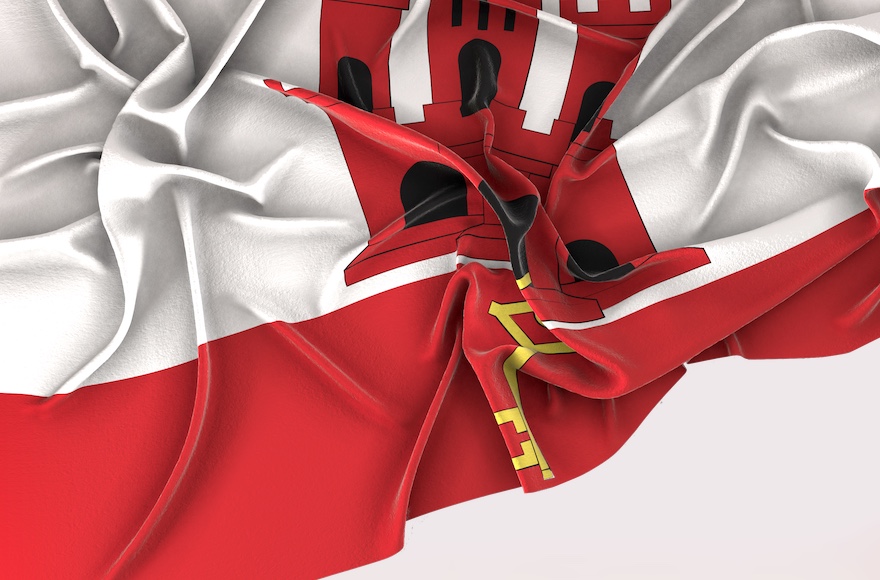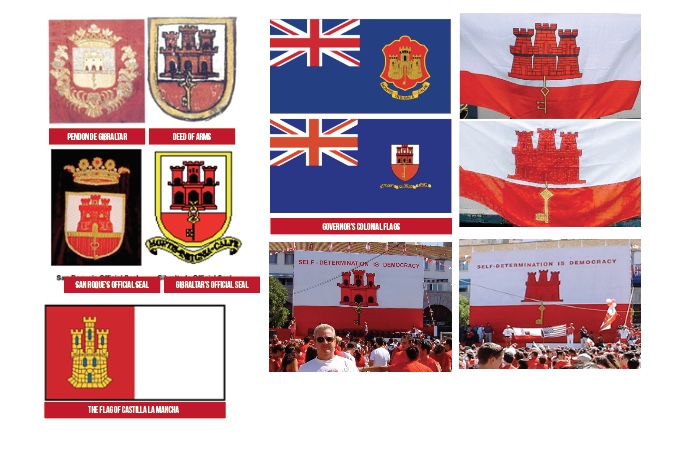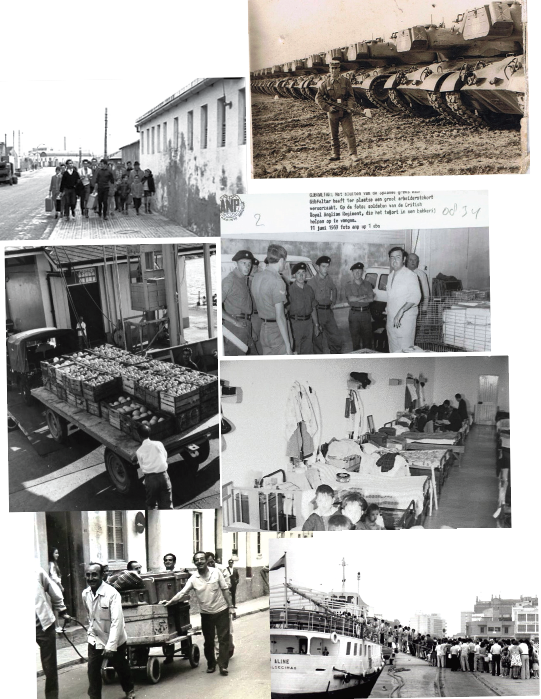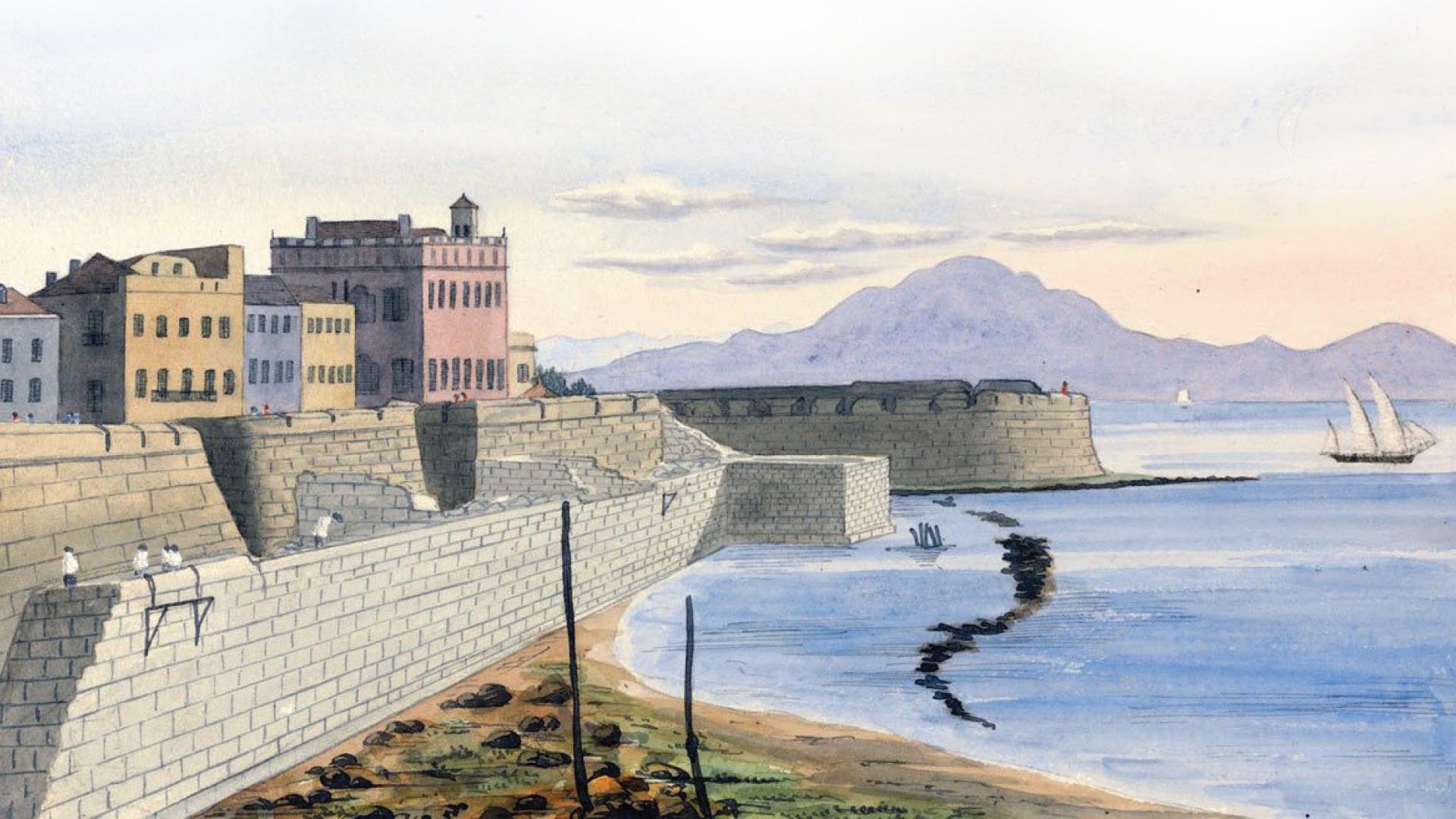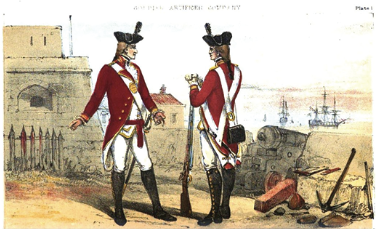The Gibraltar Flag
The first, is the famous “Pendon de Gibraltar” or Gibraltar Pennant, which is kept in San Roque’s City Hall. This pennant or flag was presented to the most noble city of Gibraltar, key of Spain, together with the Deed of Arms and is supposed to have been embroidered by Queen Isabella herself in Santa Fe. Later her daughter Juana la Loca, “Crazy Joan” who followed her as queen, added the words “Most loyal and noble city”. The pennant has the Castle and Key on one side and the Spanish Royal Coat of Arms on the other. Many will be surprised to hear that this is not the Castle and Key we use on our flag.
The one Gibraltar has adopted is the true Coat of Arms, which is described and drawn in the Deed of Grant. The original drawing is just one inch high by three-quarters of an inch wide!
In 1869 a circular dispatch was sent to all British Colonies requesting that a sketch of arms or badge to be emblazoned in the centre of the Union Jack used by Governors should be supplied to the Colonial Office. No less than eleven examples were submitted. And then it happened, when on 28th September 1926 the late Sir Charles Monro, Governor of Gibraltar, recommended that the arms originally granted by Fernando and Isabella should, by right, be regarded as the true, proper and ancient Arms of Gibraltar and since the people liked the motto “Montis Insignia Calpe”, he suggested that these words should also be regarded as part of the device. The Garter King of Arms advised that this could be done without a Royal Warrant, but only if a properly attested and accurate copy of the Spanish Grant of Arms by Fernando and Isabella in 1502 could be obtained. This was obtained and the Arms were accepted.
With reference to the motto “Montis Insignia Calpe”, which literally means “A mountain named Calpe”, there are those who see it as rather insignificant after the Rock’s turbulent history. Another motto which was coined after the Great Siege of 1779-83 was suggested and taken up by the Gibraltar Regiment as “Nulli Expunabilis Hosti” which can be translated as meaning one of three different interpretations. The first “Never Yield Unto the Enemy” another “Never Defeated by the Enemy” or “Conquered by no Enemy”, which more or less convey the same message.
Now we take an in-depth look at the flag and realise that the castle has no association with our Moorish Castle as most people believe. This castle on the flag in non other than the one representing Castille. The flag of Queen Isabella was that of Castilla La Mancha which is red and white with a golden castle on the red sector. This she cleverly turned with the white above and the red below and put her castle in red on the white sector, to this she added a golden key hanging from the castle gate. This Key is the only thing that has to do with Gibraltar as it was seen as the key to Spain and also to the Atlantic and Mediterranean Seas.
In the past recent years people both in Gibraltar and San Roque have taken liberties in their own interpretation of the flag and badge of Gibraltar, making many variations and departing from the true version. I have selected a few as examples.
These two flags are NOT true Gibraltar flags; compare the Castles with the true one below.
National Day 2002 the last time we would see that flag displayed.
National Day 2003 at long last the correct flag is displayed after my appearance on Gibraltar TV where I shot all the other flags down!

